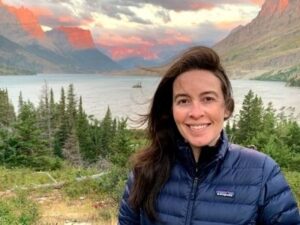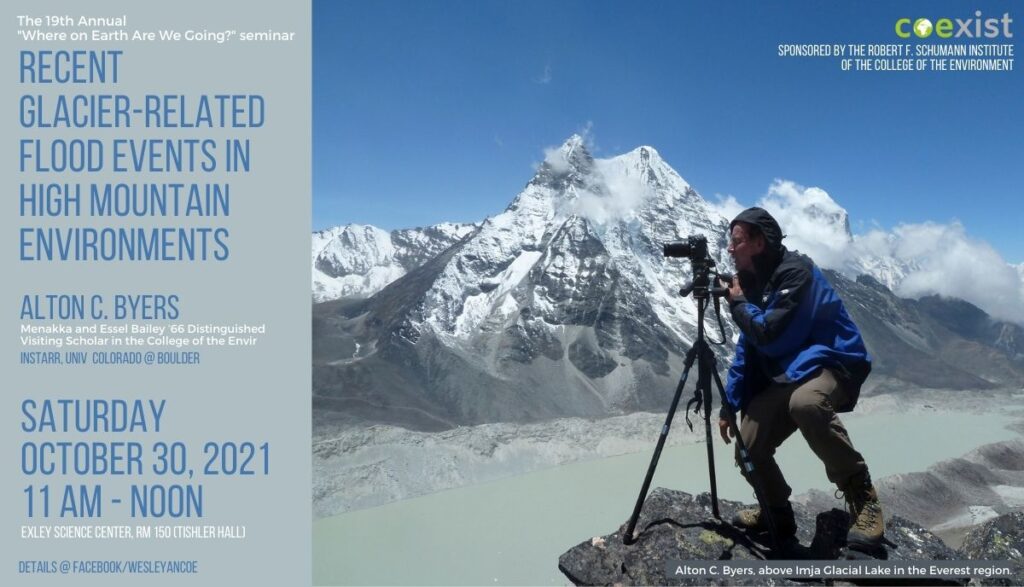
Each academic year, the COE invites a small group of Wesleyan faculty and undergrads plus a noted outside scholar to join together in a yearlong discussion on a critical environmental issue. The Think Tank features a new theme, and new fellows, each year. This year’s COE Think Tank features (from top left): Janice P. Nimura, the Menakka and Essel Bailey ’66 Distinguished Visiting Scholar in the Bailey College of the Environment; Katja Kolcio, associate professor of dance; Ella Doherty ‘24, a biology and environmental studies major; Debbra Goh ’24, an environmental studies and religion major with a minor in the College of East Asian Studies; Andrew Curran, William Armstrong Professor of the Humanities; and Ying Jia Tan, associate professor of history. The group will spend the academic year exploring the theme of “Reimagining Civilization in the Anthropocene.”




